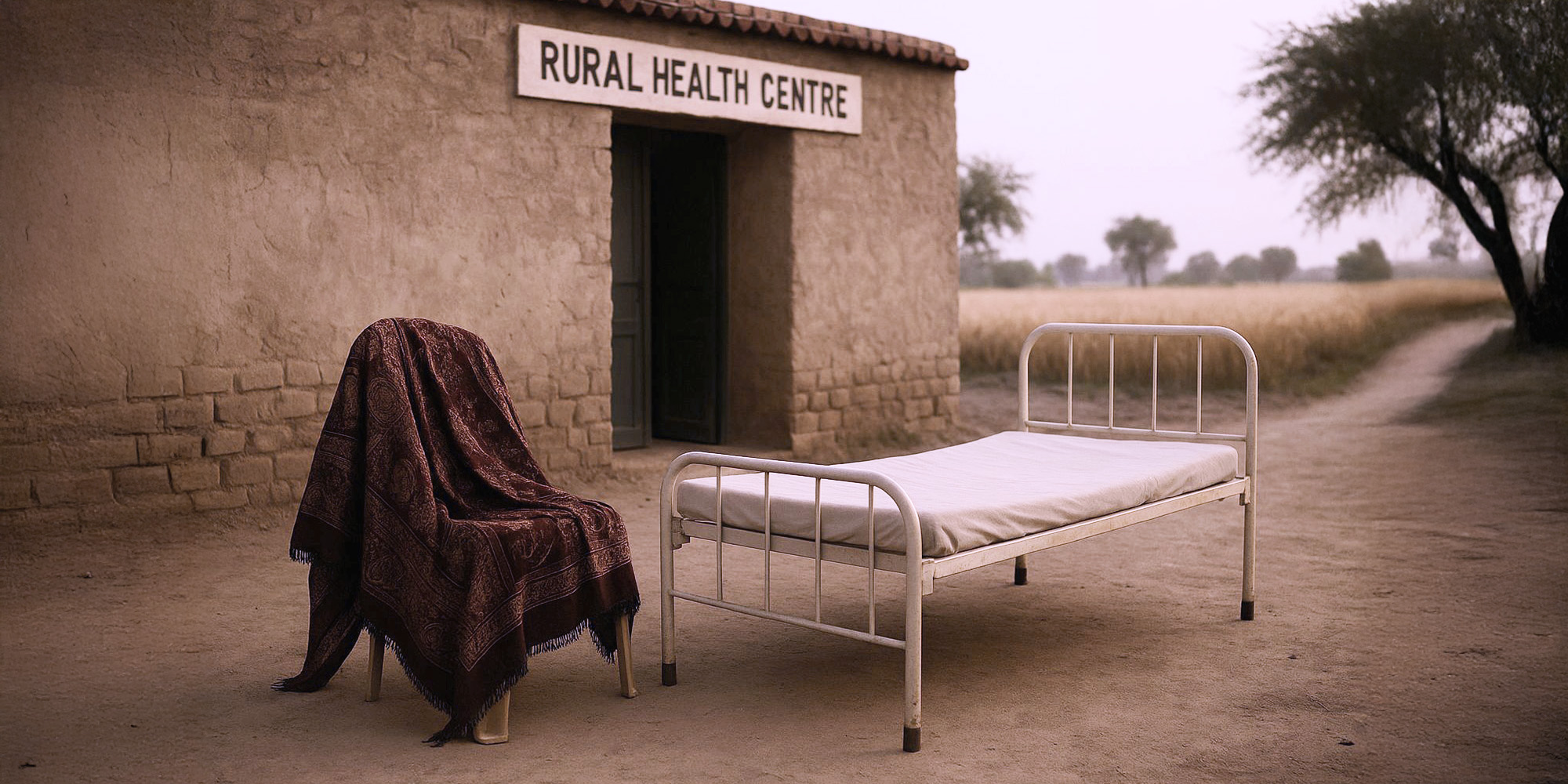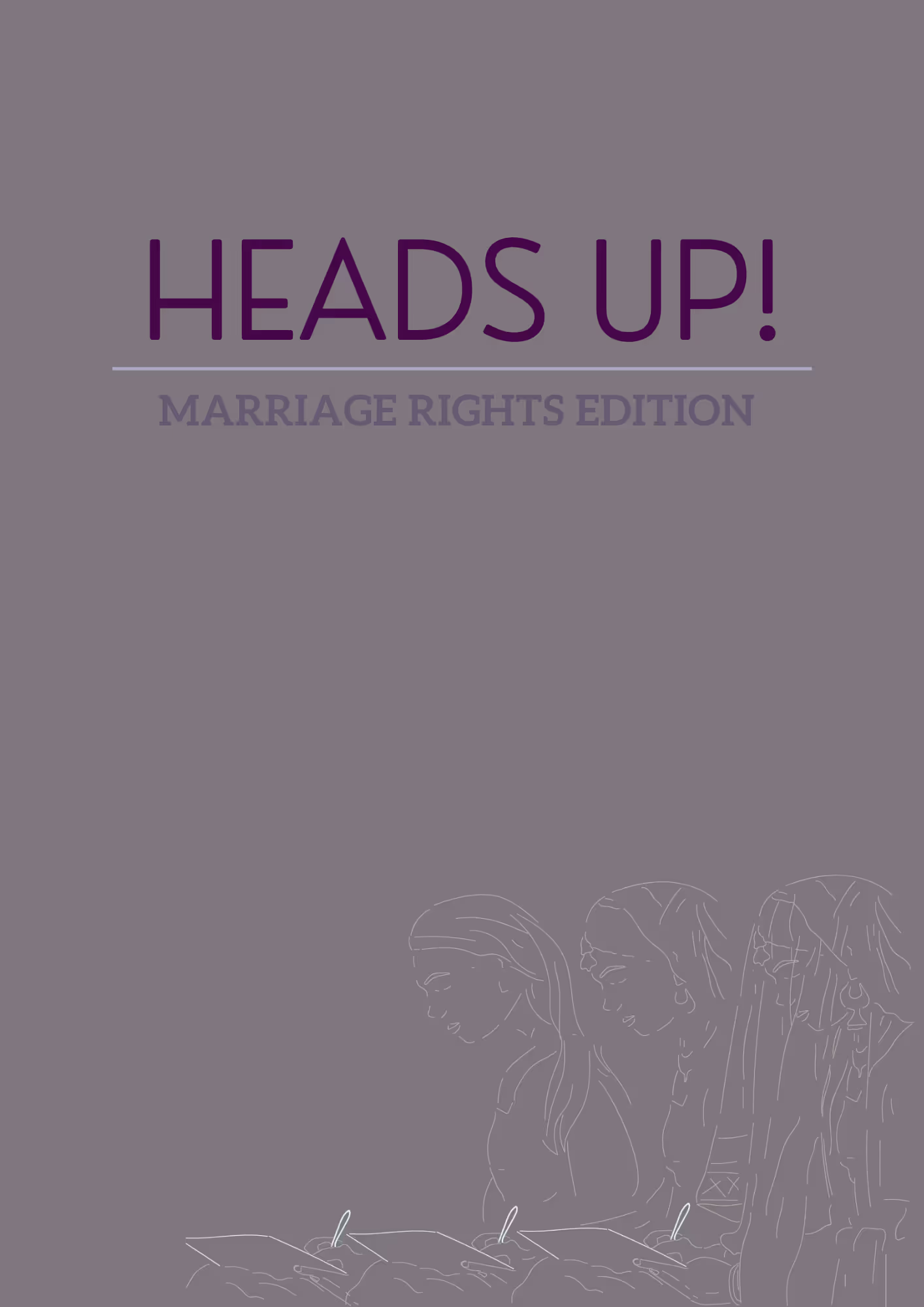

Gender-based Violence
CFHR champions gender justice by combating gender-based violence through impactful research & policy advocacy driving systemic reform, community awareness & education initiatives empowering individuals with knowledge of their rights, and targeted capacity building & legal support to strengthen justice systems for survivors.

Marriage Rights
CFHR empowers Pakistani women by increasing awareness of marriage rights through workshops, campaigns, and legal aid. We train key stakeholders and engage in strategic litigation to address systemic issues and ensure equitable enforcement of marriage laws.

Refugee Rights
CFHR addresses the global refugee crisis, focusing on Pakistan's Afghan refugees. Through research, legal analysis, and a Refugee Rights Clinic, they empower students to advocate for inclusive policies, bridging protection gaps and championing education as a universal right.

Smuggling of Migrants
CFHR combats migrant smuggling in Pakistan through evidence-based policy reform, law enforcement training, and creating safe migration pathways, while addressing root causes and providing legal protection to vulnerable migrants.

Trafficking in Persons
CFHR combats Pakistan's human trafficking crisis through research, policy reform, law enforcement training, victim support, and national/international collaboration.

Transgender Rights
CFHR champions transgender rights in Pakistan through research, advocacy, and policy implementation, working to eliminate discrimination and ensure access to education, healthcare, and employment opportunities.
Related Publications

A Dual-faceted Deterrence Model: Combatting GBV through Conviction Certainty and Rehabilitation
Shahyan Naeem highlights Pakistan’s failure to protect women amid rising gender-based violence. Weakening punishments without boosting conviction rates or offender rehabilitation won’t deter crimes. A dual approach targeting legal reform and cultural change is vital for real progress.

Beyond Infrastructure: Unpacking Maternal Mortality in Punjab
Mahru Hasan Syed analyzes maternal mortality in Punjab, focusing on socio-cultural norms, gender dynamics, and health literacy, while advocating for rights-based reforms, community empowerment, and policy changes.

Training & Learning Module WMRs in Pakistan
CFHR empowers educators with a comprehensive toolkit to teach women’s marriage rights through the Nikahnama via lessons, activities, and legal guides.
.avif)
Training Needs Assessment - Summary Findings Report WMRs
The report explores youth knowledge and attitudes on women’s marriage rights, revealing legal gaps and social norms from over 1,300 surveyed nationwide.

WMR Cards Against Humanity
CFHR’s legal card game uses humor and teamwork to teach women’s marriage rights in Pakistan, from Nikahnama to divorce, in a fun, memorable way.

Children of a Lesser God – The Plight of Power Loom Workers
Power loom workers in Pakistan face severe health risks due to unsafe working conditions, including respiratory illnesses, eyesight problems, and musculoskeletal issues. The Punjab Occupational Safety and Health Act of 2019 aims to improve these conditions, but significant implementation challenges remain.

Nikahnama Training-of-Trainers Curriculum
The Centre for Human Rights, with the Council of Islamic Ideology, offers a Training-of-Trainers Curriculum on Pakistan's Nikahnama, empowering Nikah Registrars with legal and Islamic insights on marriage rights.

Handbook on Women’s Marriage Rights Legal Aid & Advocacy Clinics in Pakistan
This handbook helps law professors in Pakistan establish legal aid clinics focused on women's marriage rights. It covers clinical legal education, practical skills, and substantive issues for clinic setup and training.

The Convergence of Financial Violence and Polygamy in Pakistan
Financial violence in Pakistan, often exacerbated by polygamy, deprives women of financial autonomy and leaves them vulnerable. Societal pressures and legal loopholes further hinder their ability to escape this abuse.

Is Western Media Diverging from Responsible Journalism When it Comes to the Genocide in Palestine?
Western media portrays Palestinians as collateral damage, unlike Ukrainians who are depicted as resistance fighters. This bias, evident in the coverage of the October 7th events and beyond, dehumanizes Palestinians and undermines responsible journalism.

The Shadow of Impunity: Understanding Extrajudicial Killings in Pakistan
Extrajudicial killings in Pakistan violate fundamental human rights, causing widespread human rights abuses and undermining the rule of law. Addressing this requires comprehensive legal reforms, strengthened accountability mechanisms, and a societal shift towards upholding justice and human rights.

Punishing Juveniles: A Case Study of Inhuman Sentencing in Pakistan
Pakistan's Juvenile Justice System Act of 2018 aimed to improve juvenile offender rights, but flaws in age determination and implementation persist, leading to ongoing human rights violations. Legislative amendments, judicial sensitization, and improved birth registration are crucial for effective reform.

Preventing Smuggling of Migrants from Pakistan to Malaysia (2024)
CFHR's report on Pakistan-Malaysia migration analyzes trends, abuse, and policy gaps, offering recommendations to improve legal pathways and reduce irregular migration.

Dissolution of Marriage in Punjab: The Cost of Divorce for Muslim Women
This report examines women's access to justice when dissolving marriages in Punjab, focusing on four methods: talaq, khula, delegated divorce, and mutual divorce. The research, conducted in Lahore and Pakpattan, used both quantitative and qualitative methods.

Family Law Report on Women’s Marriage Rights in Pakistan
This report, a collaboration between the Centre for Human Rights and the American Bar Association Rule of Law Initiative, with support from Minto & Mirza, examines Pakistani laws affecting Muslim women's marriage rights. It clarifies ambiguities regarding divorce, custody, maintenance, and property, presenting case law concisely.

Strategic Litigation Report: Women’s Marriage Rights in Pakistan
The Centre for Human Rights and the American Bar Association Rule of Law Initiative collaborated on a report analyzing Pakistani marriage and family laws. This report, supported by Axis Law Chambers, identifies issues like inconsistent minimum marriage ages and weak women's financial rights post-divorce.

Diagnostic Study of Nikanama in Punjab: A Review of Women's Marriage Rights
This research assesses women's marriage rights in Punjab, focusing on the nikkahnama. The study analyzed 1,150 nikkahnamas, along with surveys and interviews to understand gaps impacting women's rights.

Fact Sheet: Diagnostic Study of Nikahnamas in Punjab
This Fact Sheet provides key insights from the Diagnostic Study of Nikkahnamas in Punjab: A Review of Women's Marriage Rights.
.avif)
Inter-Provincial Consultation on Women's Marriage Rights in Pakistan
CFHR, in collaboration with Musawi and ABA ROLI, hosted a national consultation in August 2023, uniting over 200 diverse stakeholders to address critical issues like minority women’s rights and family law barriers.

Human Rights Review Vol VIII
This volume examines barriers to women's marriage rights in Pakistan, highlighting legal gaps, underage marriage, marital rape, and access to divorce.
%20Report%20on%20Transgenders%27%20Access%20to%20Justice.avif)
Technical Assistance Needs Assessment (TANA) Report on Transgenders' Access to Justice
TANA assesses justice access barriers for transgender people in Sindh, offering data-driven insights and reforms to strengthen inclusion and accountability.

Nikahnama Cheat Sheet
CFHR’s Nikahnama Cheat Sheet is a concise visual tool from the Ijaazat Campaign, simplifying key marriage contract clauses for women’s awareness.

Nikahnama Checklist
CFHR’s Ijaazat Campaign offered a detailed checklist to empower women and families in navigating the Nikahnama process with confidence and clarity.

Women's Marriage Rights [Pocket Dictionary]
This pocket dictionary, created under the Ijaazat Campaign, simplifies legal terms to empower women in Pakistan with knowledge of their marriage rights.

Heads Up - Marriage Rights Edition
CFHR’s interactive game raises awareness of women’s marriage rights through engaging, team-based challenges in workshops and classrooms.

Human Rights Review Vol VII
This volume explores key human rights challenges, from COVID-era rights violations to cyberwarfare laws, featuring diverse legal insights and global perspectives.

Defining Honour: The Case of Qandeel Baloch
The Lahore High Court acquitted the accused in the Qandeel Baloch murder case due to a pardon from the victim's parents, highlighting issues within Pakistan's criminal justice system. The court's decision is criticized for its restrictive interpretation of the law and its failure to address the systemic issues contributing to impunity in honor killings.

Justice in the Juvenile Justice System of Pakistan
The Juvenile Justice System Act of 2018 in Pakistan aimed to improve the juvenile justice system, but implementation remains lacking. The act's shortcomings, particularly concerning age determination and the death penalty for juveniles, continue to violate international human rights standards.

Human Rights Review Vol VI
This volume explores counter-terror laws, their human rights impact, and judicial oversight, highlighting tensions between security, nationalism, and civil liberties.

Harassment, Bullying & Misconduct Policy
This template for educational Institutions helps to promote survivor-sensitive policies to prevent harassment, bullying, and misconduct through legal alignment in universities in Pakistan.

Economic Cost of Violence against Women
Violence against women significantly impacts victims, society, and the economy. This report examines the economic costs of this violence globally and in Pakistan, highlighting the need for improved data collection and effective prevention policies.

Accountability for Rape - A Case Study of Lodhran
Investigating justice for Pakistani rape victims, this project analyzed 63 trial court files from District Lodhran, revealing procedural challenges contributing to high acquittal rates.

Maternal Mortality in Low Income Households in Lahore, Pakistan
Pakistan has a high maternal mortality rate, partly due to inadequate healthcare for impoverished women. A study of 23 low-income women in Pakistan identified obstacles to adequate pregnancy care and offered recommendations to improve maternal health outcomes.

Rights of Transgender Persons in Pakistan
CFHR undertook a project to assess the effectiveness of the 2018 Act in addressing the challenges faced by transgender individuals. Law students at CFHR’s Human Rights Clinic conducted a literature review, examining legal and societal issues under the supervision of the project lead.

The Use of the Two-Finger Test in Pakistan
The Two Finger Test, a discredited medico-legal practice assessing virginity through vaginal muscle laxity, violates human rights and lacks scientific basis, yet persists in countries like Pakistan. Research by law students aims to eliminate this test through legal and societal reform, addressing its continued use and arbitrary court interpretations.

Human Rights Review Vol V
This volume explores fair trials for mentally ill inmates, child marriage in informal courts, blasphemy law abuse & Sharia's place in global human rights law.

Human Rights Review Vol IV
CFHR’s Volume IV explores Pakistan’s human rights challenges—torture, health, climate justice, and minority rights—through legal and field research.

Human Rights Review Vol III
CFHR’s legal journal fosters critical dialogue on Pakistan’s human rights laws, spotlighting justice gaps, legal reform, and international obligations.

Human Rights Review Vol II
CFHR’s legal journal offers critical insights on human rights in Pakistan, blending expert analysis on law, gender justice, and constitutional reform.

Human Rights Review Vol I
CFHR’s first legal journal amplifies human rights discourse in South Asia through expert and student-led analysis on justice, law reform, and accountability.

Humanizing Refugees in Pakistan
The Refugee Rights Clinic engaged 21 students from UCL and KCW, offering practical research and advocacy experience under CFHR experts, focusing on refugee children's right to education and legal identity in Pakistan.

Marriage Rights Documentary
This documentary explores the Nikahnama's vital role in marriage, showing how its clauses safeguard rights and guide informed, empowered decision-making.
Local Action, Global Impact
We work across Pakistan, driving legal reform, advocacy, and policy change to protect human rights and empower communities.
